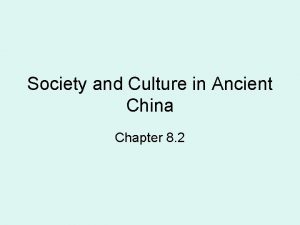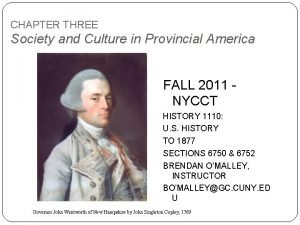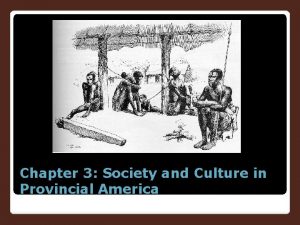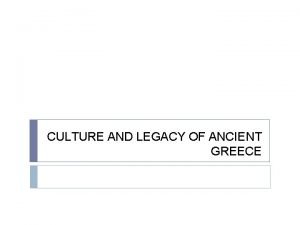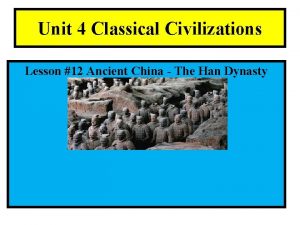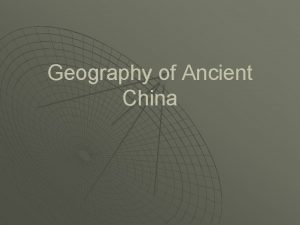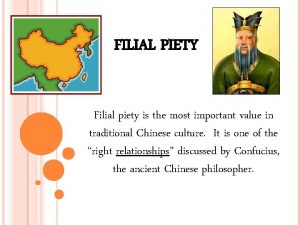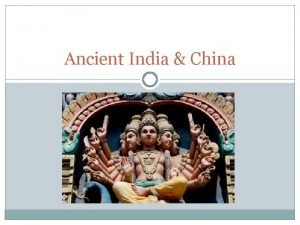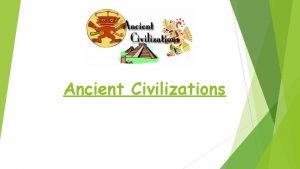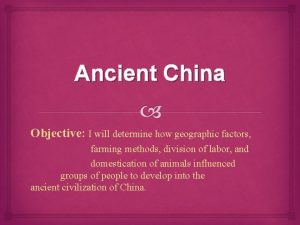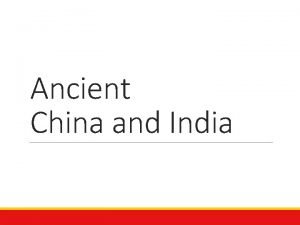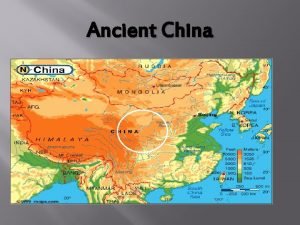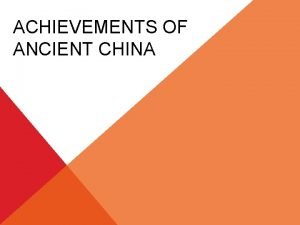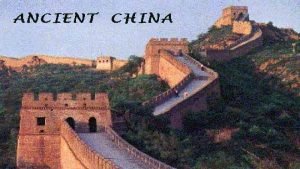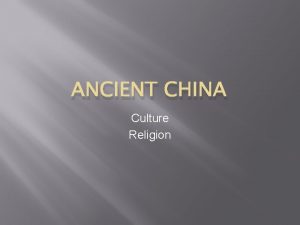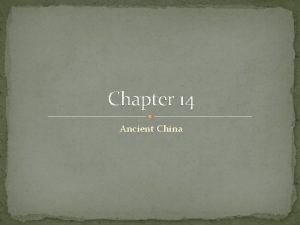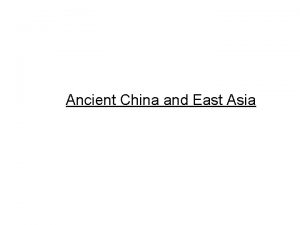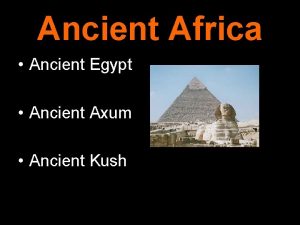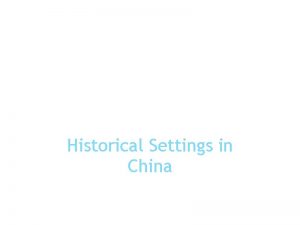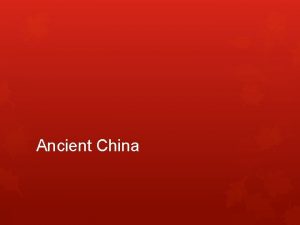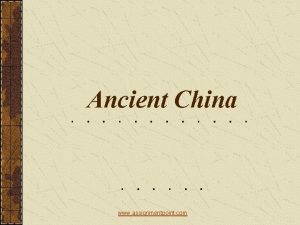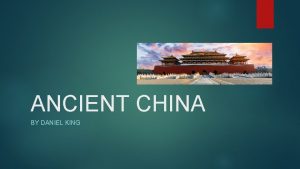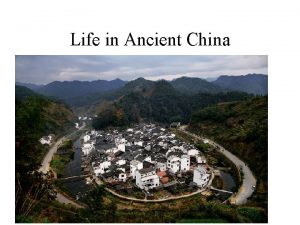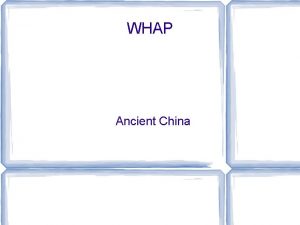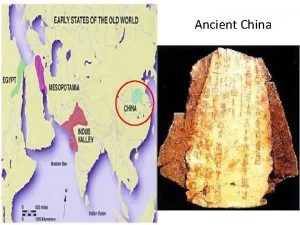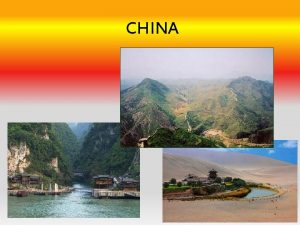Society and Culture in Ancient China Chapter 8
















- Slides: 16

Society and Culture in Ancient China Chapter 8. 2

Objectives 6. 33 Describe how the size of ancient China made governing difficult and how the concepts of the mandate of heaven and Legalism emerged as solutions to this problem. C, G, H, P 6. 34 Identify the political and cultural problems prevalent in the time of Confucius and how the philosophy of Confucianism and The Analects emphasized the concepts of kinship, order, and hierarchy to address these problems.



Chinese Philosophies • 2 major philosophies – Confucianism – Legalism – Main Goal was to create a well-run and peaceful society

What Ideas Did Confucius Teach? • Confucianism was based on teaching of Confucius – Criticized kings – Urged people to follow ancestors – Tried to bring peace and harmony to China – Duty is central idea of Confucianism • Parents love children • Children respect parents • Rulers should rule justly

The Influence of Confucius • Confucius believed the government service should be open to men of ability • Sayings of Confucius called The Analects • His ideas continued to shape Chinese society until 1900 s

Legalism • Legalism-School of Law – Believes humans are evil – Strict laws and harsh punishment were necessary to force people to do their duty – EMPHASIZED FORCE


Chinese Life • Chinese society was divided into 4 classes – Landowning aristocrats – Farmers – Artisans – merchants

Lives of Aristocrats • Aristocrats were wealthy • Owned large plots of land • Family’s land was divided equally among all of the male heirs

Lives of the Farmers • 9 out of 10 Chinese farmed • Lived in rural villages surrounded by mud walls • Rented the field • Paid taxes • Farmers forced to serve as soldiers

Lives of the Artisans and Merchants • Artisans are skilled workers • Wealthy • Not respected members of society – People believed merchants worked for their own gain and not for the good of society

What were Chinese Families Like? • Family was at the center of early Chinese society • Practiced filial piety-people’s responsibility to respect and obey their parents • Required people to take care of their parents


Roles of Men and Women • Men were respected because of their jobs • Considered the jobs of men more important than the work of women • Women raised children and saw to their education • Women managed household and family finances
 Ancient india vs ancient china
Ancient india vs ancient china Chapter 8 ancient china
Chapter 8 ancient china Chapter 3 society and culture in provincial america notes
Chapter 3 society and culture in provincial america notes Chapter 3 society and culture in provincial america
Chapter 3 society and culture in provincial america Culture or way of living station 1
Culture or way of living station 1 Ancient china roads
Ancient china roads Ancient china hierarchy pyramid
Ancient china hierarchy pyramid Mansa musa accomplishments
Mansa musa accomplishments Ancient china map taklamakan desert
Ancient china map taklamakan desert Ancient china confucius
Ancient china confucius Ancient china confucius
Ancient china confucius Ancient china confucius
Ancient china confucius Environment of ancient china
Environment of ancient china Ancient china social class
Ancient china social class Physical map of ancient china
Physical map of ancient china What were the major achievements of the shang dynasty
What were the major achievements of the shang dynasty Helped overthrow the qin dynasty
Helped overthrow the qin dynasty

